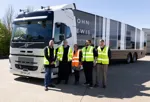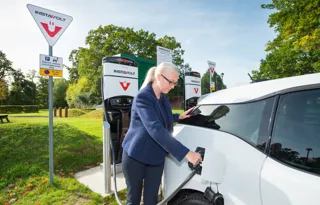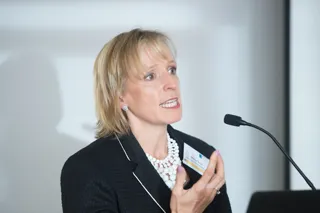By Patrick Gallagher, CEO of CitySprint Group
The Department for Environment, Food and Rural Affairs (Defra) recently stated that while the Government has a role to play in tackling emissions, it “cannot act alone”.
This is undoubtedly true, but it draws attention away from those who are most responsible for ensuring that businesses – and individuals – have the information and infrastructure needed in order to play their part in reducing air pollution.
I was pleased to hear that Government is beginning to consider steps to tackle such issues, with the publication of the Road to Zero strategy in July.
Additionally, through the Clean Growth Strategy, it has committed to cutting carbon emissions – promising an investment of nearly £1.5 billion to accelerate the rollout of low emission vehicles by 2020.
Given the nature of our business, the logistics industry has an active role to play in lowering emissions to create an environment fit for the future.
Fleet managers must take a longer-term view of how they operate in urban areas and invest in a selection of vehicles that use different fuels, from pushbikes and cargo bikes to electric and hydrogen vans.
But, while the adoption of hydrogen and electric vehicles will play a significant role in reducing emissions, one of the biggest barriers is the infrastructure to support these vehicles.
In addition to creating a green fleet, businesses must also take a more critical look at their operations.
For example, to help adapt for a more sustainable future, we’ve been working with engineering students from the University of Southampton to identify ways to improve our green policies.
By giving them full access to our anonymised operational delivery data in London, they have identified some key trends which will help us make positive changes. These changes have the potential to save up to 200kg of CO2 per day across the network.
While I welcome recent Government announcements, and the impact these will have on driving the industry to reduce emissions, I believe the Government and Transport for London need to do more to support businesses and remove barriers to sustainability.


















Login to comment
Comments
No comments have been made yet.